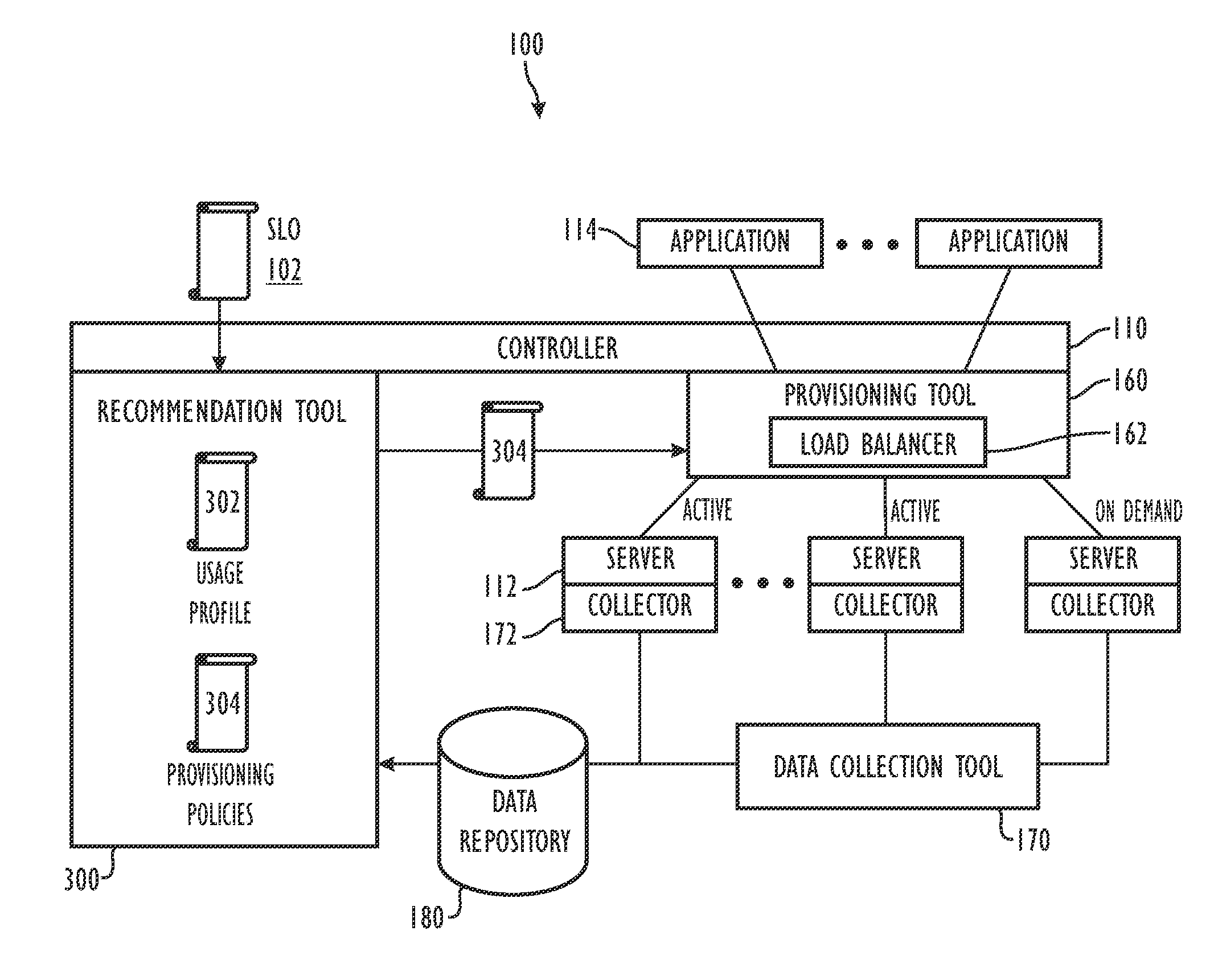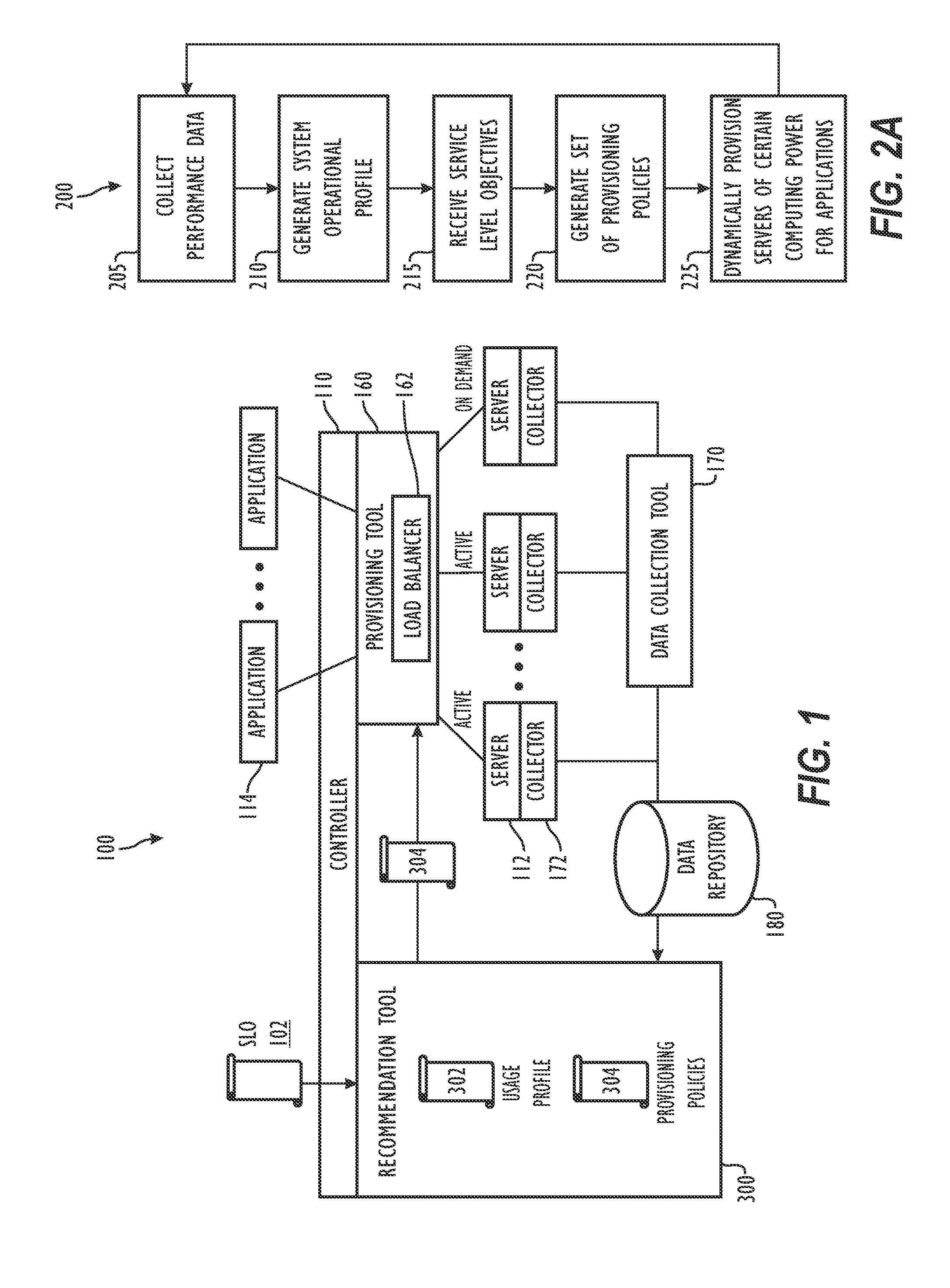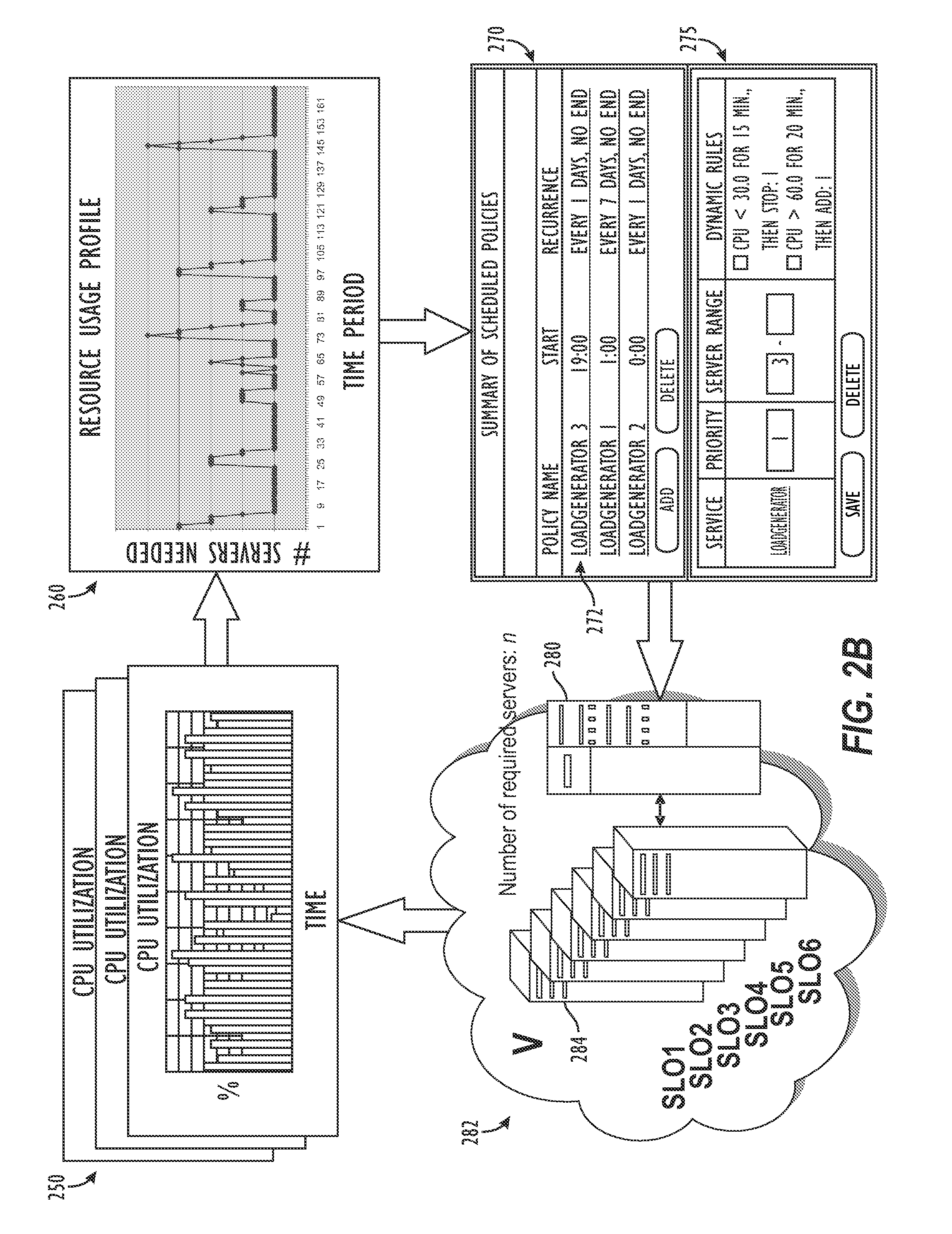Automated Capacity Provisioning Method Using Historical Performance Data
a technology of historical performance data and automatic provisioning, applied in the direction of multi-programming arrangements, program control, instruments, etc., can solve the problems of not receiving direct feedback, prior art capacity planning tools do not provide direct input to provisioning tools, and direct output from prior art capacity planning tools would not be usable by prior art provisioning tools
- Summary
- Abstract
- Description
- Claims
- Application Information
AI Technical Summary
Benefits of technology
Problems solved by technology
Method used
Image
Examples
Embodiment Construction
[0016]FIG. 1 illustrates one embodiment of an automated capacity provisioning system for a computer system 100. The provisioning system includes a recommendation tool 300, a provisioning tool 160, a data collection tool 170, and a data repository 180. In general, computer system 100 can be a network system, an enterprise system, or the like and can include various system components, such as workstations, computer servers, applications, storage devices, network connections, and other conventional components. For the sake of illustration, computer system 100 is schematically illustrated in FIG. 1 as having a controller 110 relative to a plurality of servers 112 and applications 114. Controller 110 can comprise one or more servers or other computing devices and can execute one or more of recommendation tool 300, provisioning tool 160, and data collection tool 170.
[0017] As discussed below, recommendation tool 300 automatically provides provisioning policies 304 to automatically manage...
PUM
 Login to View More
Login to View More Abstract
Description
Claims
Application Information
 Login to View More
Login to View More - R&D
- Intellectual Property
- Life Sciences
- Materials
- Tech Scout
- Unparalleled Data Quality
- Higher Quality Content
- 60% Fewer Hallucinations
Browse by: Latest US Patents, China's latest patents, Technical Efficacy Thesaurus, Application Domain, Technology Topic, Popular Technical Reports.
© 2025 PatSnap. All rights reserved.Legal|Privacy policy|Modern Slavery Act Transparency Statement|Sitemap|About US| Contact US: help@patsnap.com



